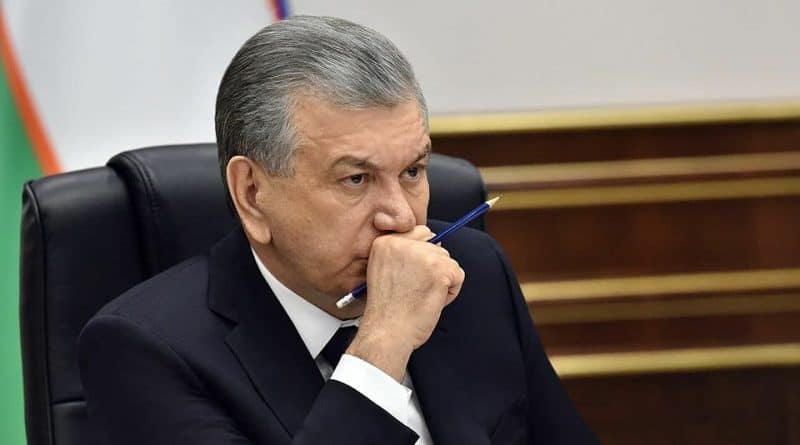Uzbekistan: authorities prepare for popular discontent
After being signed by the President, the Law on amendments to the Criminal Code and the Code of Administrative Responsibility came into force on October 5, increasing the punishment for resisting a representative of the government. As the ACCA previously wrote, the Senate approved the law without public details.
Now, the updated article 219 of the Criminal Code “Resistance to a representative of the government or a person performing a civil duty” contains a provision that active opposition to the legitimate activities of a representative of government acting in official duties or a person performing a civil duty is punishable by fines or correctional labor up to 3 years. Restriction of freedom from 1 to 3 years or imprisonment from 1 to 3 years is also possible. Before the new rule, the violator was threatened with a fine or correctional labor up to 3 years or restriction of freedom for up to 1 year or imprisonment for up to 1 year.
In particular, changes in Article 194 of the Code of Administrative Responsibility “Failure to comply with the legal requirements of an employee of the internal affairs bodies”, failure to comply with the legal requirements of the police officer to stop offenses, submit documents for verification, to follow or appear at the police station within the specified period without good reason, to stop the vehicle, assisting the injured or otherwise disobeying the legal requirements of the police officer, as well as failure to comply with the legal requirements of other persons carrying out the duties of protecting public order and ensuring the rights and freedoms of citizens shall result in a fine from $ 25 to $ 303 (previously – from $ 12.5 to $ 25 ). Article 194-1 “Failure to comply with the legal requirements of a serviceman (employee) of the National Guard of the Republic of Uzbekistan” refers to the same amount of the fine.
Article 195 “Counteraction to the performance of official duties by employees of the internal affairs bodies” outlined a “new” severity of public calls for non-compliance with the legal requirements of a police officer in connection with the performance of his official duties, as well as the spread of deliberately false fabrications to provoke mass disobedience to police officers. As a result, a fine from $ 76 to $ 505 (previously – from $ 76 to $ 127) or administrative arrest for up to 15 days.
Article 195-1 “Counteraction to the fulfillment of official duties by military personnel (employees) of the National Guard of the Republic of Uzbekistan” knowingly false fabrications with the aim of provoking mass disobedience to the military personnel (employees) of the National Guard. From now on, it will also be in the form of a fine from $ 76 to $ 505 or administrative arrest for up to 15 days.
Officials will also receive additional protection from possible negative reactions from the population. Article 198 “Failure to comply with legal requirements or obstruction of the performance of official duties of a representative of the authorities” is fraught with a fine for citizens from $ 25 to $ 300 (previously – from $ 12.5 to $ 25).
ACCA in its March publication noted how President Mirziyoyev, by his decree, returned the country to the era of totalitarianism of the Karimov type. Criticism of the president and the state fell under the ban, criminal responsibility for public calls for mass riots (imprisonment for up to 5 years) was enshrined.
New legislative acts should stop possible popular unrest. Due to the lack of gas, water, and electricity, residents often block roads and hold spontaneous rallies in the province, where they especially feel the arbitrariness of the corrupt authorities. Recently, in the Samarkand region, 13 people were punished with fines and administrative arrest for blocking the highway due to lack of gas. Similar incidents took place in Andijan, Navoi, Surkhandarya, Bukhara, and Jizzakh regions.
The ACCA expert notes that “the smoke of burning tires at the protests clearly spoils the blissful picture of official assurances about the growing prosperity in the country. Something must be done about this, and the authorities are using proven methods of suppressing popular discontent. ”
During the period 2018-2020, 742 people were convicted for active resistance to representatives of the authorities. A month before the presidential elections, the press service of the Ministry of Internal Affairs disseminated in the local media the news about the purchase of electroshock devices – shockers, batons, and pistols. Along with this, dozens of paddy wagons and other special equipment were purchased to disperse rallies/demonstrations.




